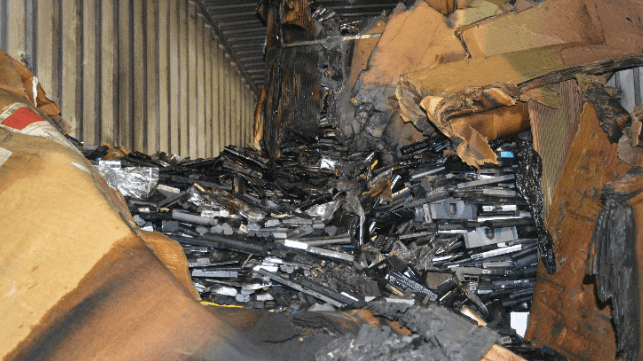TT Club: Improper Shipping of Li-Ion Batteries Puts Vessels at Risk

The international insurer TT Club is calling for increased vigilance in shipments of lithium batteries to help curb a troubling increase in cargo fires.
Recently, the air transport industry revised regulatory restrictions on the carriage of lithium batteries, which took effect on April 1. This may result in greater volumes of being transported by sea, the club warned, creating more risk for maritime commerce.
TT Club Risk Management Director Peregrine Storrs-Fox also believes there is a small minority of shippers who appear to be intent on avoiding compliance with the rules for this cargo, to the detriment of other shippers.
Lithium batteries have to be certified before shipment. This involves a series of rigorous tests performed by an approved independent laboratory, mainly to ensure they can withstand everyday use and transport. The responsibility for testing falls on the shipper and the manufacturer.
However, due to a sharp rise in demand, substandard and untested batteries have become commonplace. In particular, e-commerce platforms are enabling a global trade of these potentially lethal products, often by circumventing global standards and regulations.
Notably, care must be taken when dealing with reverse logistics of the lithium batteries - damaged or faulty units that are being returned or are headed for recycling - as they present the most supply chain risk.

that matters most
Get the latest maritime news delivered to your inbox daily.
Unfortunately, fires fueled by lithium-ion batteries pose a serious danger to the vessel and the crew. They are difficult to extinguish and may create an explosion risk.
“Once lithium batteries are placed into the intermodal supply chain, there is little opportunity for the cargo to be checked, visually or otherwise to verify compliance. Due diligence into the origin of manufacturers and integrity of the shipper instigating the move of these potentially lethal power sources is critical,” concluded Storrs-Fox.
